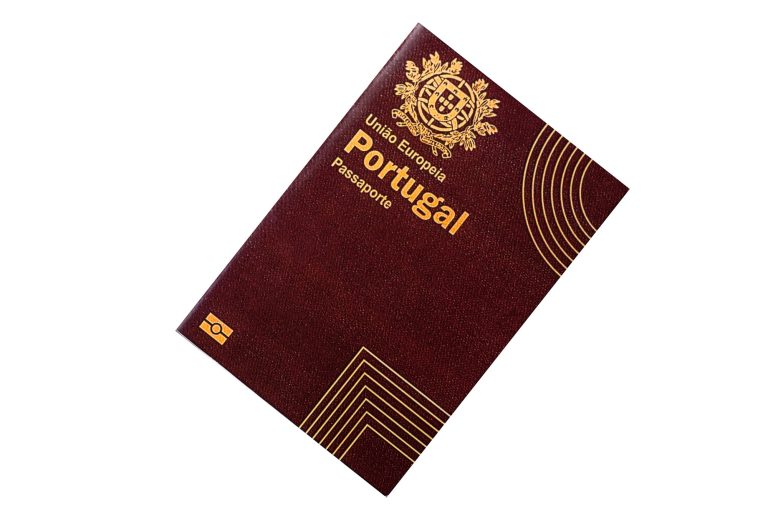Citizenship Reform
Portugal’s Parliament has approved the 28/10/2025 one of the most comprehensive reforms to its nationality law in recent decades, introducing stricter conditions for acquiring Portuguese citizenship. The measure, passed by a vote of 157 to 64, lengthens residency requirements, ends the Sephardic Jewish fast-track route, establishes civic and language examinations, and introduces new conditions for children born in Portugal.
The legislation marks a significant shift away from Portugal’s formerly liberal naturalization framework and places it among the most restrictive citizenship regimes in the European Union, alongside Spain and Italy. The reform is expected to affect more than one million foreign residents, representing over 10 percent of the country’s total population.
Key Provisions of the Reform
Extended Residency Requirements
Non-EU and non-CPLP (Community of Portuguese Language Countries) nationals, including citizens of Israel, the United States, and Canada, must now reside legally in Portugal for ten years before applying for citizenship. EU and CPLP nationals will need seven years.
The new law specifies that the residency period begins only once a legal residence permit is issued, not from the date of arrival or application. Because obtaining a permit often takes two to three years, the effective timeline for many applicants may extend to twelve or thirteen years.
Mandatory Integration Examinations
All applicants must demonstrate Portuguese-language proficiency and pass tests on the country’s history, culture, and political system. Applicants are also required to sign a declaration affirming loyalty to Portugal’s democratic principles and to prove financial independence from state support.
Citizenship for Children Born in Portugal
Children born in Portugal will no longer receive automatic citizenship unless one parent has held legal residence for at least three years. Parents must now apply for the child’s citizenship. This change eliminates automatic birthright citizenship for children of undocumented migrants, raising concern among humanitarian and migrant-rights organizations.
End of the Sephardic Jewish Fast-Track
The reform terminates the citizenship pathway established in 2015 for descendants of Sephardic Jews expelled during the Inquisition. The Justice Ministry stated that the measure had fulfilled its symbolic purpose and that future applicants must now meet the same residency and integration criteria as others. Since 2015, more than 262,000 applications were filed and about 75,000 approved, mostly from Israel, Turkey, and Latin America.
Revocation for Serious Crimes
The new legislation allows courts to revoke citizenship from naturalized individuals convicted of serious crimes within ten years of naturalization if the prison sentence is five years or longer. Revocation may not occur if it would render the person stateless. Critics have warned that this measure risks creating unequal treatment between naturalized and native-born citizens.
Third-Generation Descendant Pathway
The reform creates a new citizenship route for great-grandchildren of Portuguese nationals who can prove a strong cultural and linguistic connection to Portugal. This aims to strengthen ties with Portuguese communities abroad.
Political Context and Legislative Background
The reform follows months of constitutional review after an earlier draft was rejected due to retroactive clauses. The revised version removes retroactivity and clarifies transition rules. Applications submitted before the law takes effect will continue under the previous five-year rule, while new applicants must comply with the updated conditions.
Prime Minister Luís Montenegro’s center-right coalition, composed of the Social Democratic Party (PSD), the People’s Party (CDS), the far-right Chega, and the Liberal Initiative (IL), introduced the legislation. Montenegro stated, “Being Portuguese is both an honor and a responsibility.”
Left-wing parties, including the Socialist Party, Left Bloc, and Communist Party, voted against the bill, arguing that it restricts integration and concedes too much to Chega’s nationalist agenda.
Implementation Timeline
The law now awaits presidential signature and publication in the official gazette. Once enacted, it will take effect the following day. The government will have 90 days to establish the structure and content of the new civic examinations.
With more than 500,000 pending citizenship applications, the new rules present major administrative challenges and may deter skilled migrants in key sectors such as healthcare and technology. Supporters argue that the reform strengthens national identity and restores confidence in the naturalization process.
European Context
Portugal’s move reflects a wider European shift toward stricter citizenship policies. Spain and Italy require ten years of residence, Germany recently abolished its three-year fast-track, and France raised its language requirement to B2 level in 2025. The debate over the meaning of citizenship and belonging remains a central political issue across the continent.







